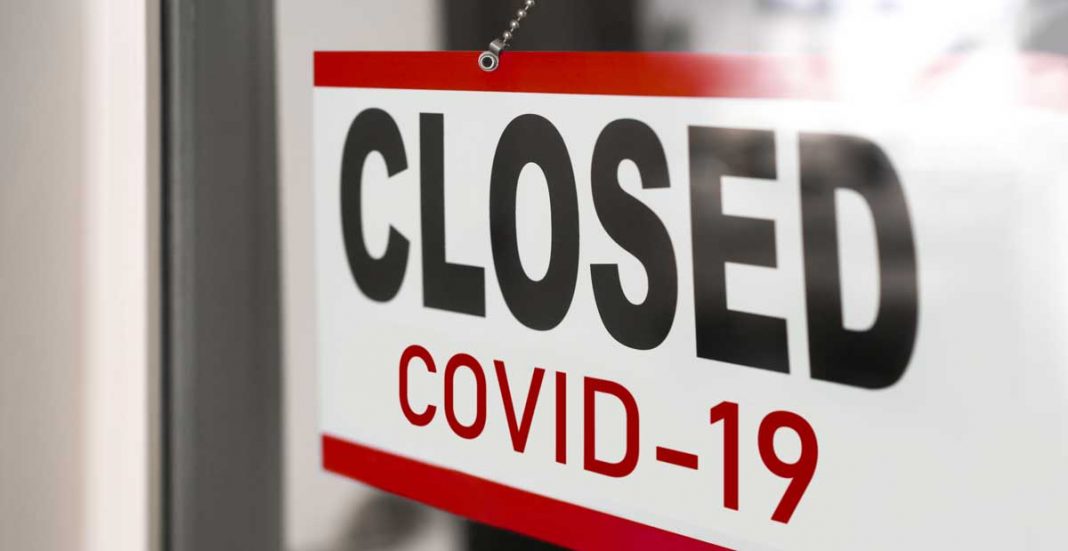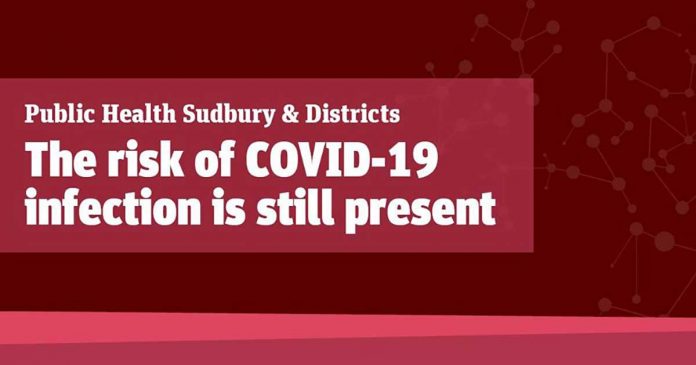NORTHERN ONTARIO—Public Health Sudbury and Districts (PHSD) is moving into the grey-lockdown portion of Ontario’s colour-coded pandemic restriction model effective 12:01 am tomorrow, Friday, March 12, as the region sees a daily increase of 55 new COVID-19 cases for a total active case count, almost all of which are in the City of Greater Sudbury, to 263. The District of Manitoulin is included in the lockdown but there are currently no active cases in that part of the region.
“By yesterday, we had 841 cases in total reported (since the start of the pandemic a year ago), but more importantly, 25 percent or a quarter of the cases we’ve ever seen have occurred in the last two weeks alone,” said Dr. Penny Sutcliffe, medical officer of health with PHSD.
The health unit hosted a virtual press conference Thursday afternoon to address the news earlier that day that the region would move into Ontario’s second-most restrictive pandemic control zone (behind a full stay-at-home order). Fifteen people have died of COVID-19 in the PHSD area in the past year.
There are several factors contributing to the recent sharp increase in total case numbers but Dr. Sutcliffe said the most concerning reason was a rise in variants of concern (VOCs). These include three fully genome-sequenced cases confirmed to be the B.1.1.7 variant, but there are another approximately 100 cases that have screened positive as being variants.
In the past week, almost half of the new confirmed cases in the PHSD region have been VOCs.
Provincial modeling suggests that VOCs will become the predominant strains of COVID-19 in Ontario, something Dr. Sutcliffe said she did not anticipate in the PHSD area.
However, the variants continue to spread the same way as the original COVID-19 strain, meaning the same preventive measures can keep people safe—frequent handwashing, reducing social contacts, avoiding non-essential travel, remaining physically distanced from others and wearing a multi-layer face mask.
Anyone with even a single symptom of the illness should self-isolate and get tested if possible; all members of their household should stay home until the test results come back.
VOCs have sharply increased the rate of new cases in the health district this month. Between March 3 and 9, that rate increased by 54.1 percent to 75.9 cases per 100,000 people.
That increase led PHSD to close all schools in the district to in-person learning, except in Chapleau. Some 13 schools have had declared outbreaks in the district, for a total of 123 cases.
“Schools, to be clear, are a reflection of what happens in the community. They’re not the cause of the problems but what’s circulating in the community impacts on our schools,” said Dr. Sutcliffe, stressing that she believes in the benefits of in-person learning and has always strived to ensure schools are the last to close and the first to re-open.
She also shared a chart that shows that household cases traced directly to schools and school outbreaks are increasing, and will likely continue to rise as investigations continue. Outbreaks have also been linked to fitness centres and social gatherings in the area.
Dr. Sutcliffe said public health teams have been working seven days per week to investigate and trace the sources of infections, and the onus is on all residents to abide by public health best practices, including working from home wherever possible and minimizing travel, to further minimize the risk of the third wave exhausting health care resources.
Vaccinations continue to roll out across the district. In response to questions from The Expositor, Dr. Sutcliffe acknowledged the long wait times to register for appointments, especially in places like Manitoulin when many people have to access the booking system via phone. She said when the provincial appointment booking system goes live next week and PHSD transitions to it over the coming weeks, this will allow more people to book via internet and free up the phone lines for those with poor internet connections or those who are not comfortable with using a computer.
“We are committed to making it better but I’d estimate about two weeks before we get to what I’d call the most accessible state,” she said, adding that the priority remains getting vaccines in the arms of the most at-risk populations.
Eligible people on Manitoulin who registered for the first vaccination lottery this past weekend (which closed on Monday) are already in the system for future rounds of appointments and do not need to re-register. When a nearby appointment slot becomes available, PHSD will select random individuals on the list and invite them to book an appointment time.
Any eligible residents who wish to register for the vaccine (including higher-priority health care workers, adults born in 1941 or earlier and recipients of chronic home care) should visit SurveyMonkey.ca/r/vaccineappointment.
The first two clinics to be held on Manitoulin will take place next week, the week of March 15.





